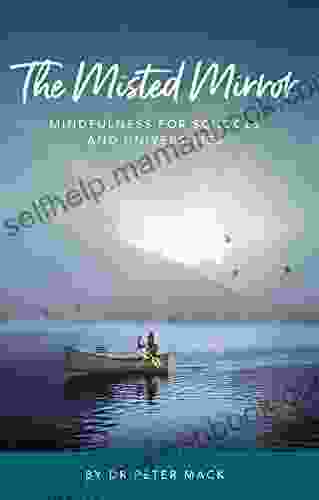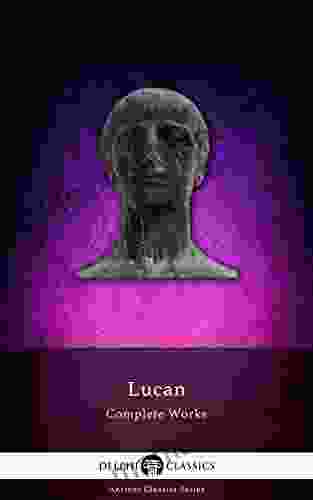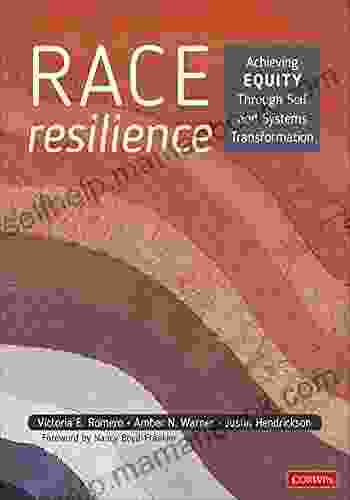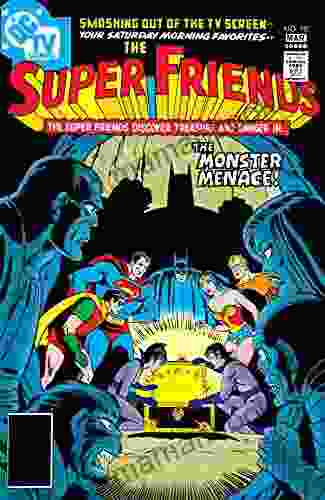The Dawn of Hope and Despair: A Journey Through the Beginnings of Human Civilization


Prologue: The Spark of Consciousness
In the primordial darkness of existence, a spark ignited - the spark of consciousness. From the depths of chaos, a new entity emerged: Homo sapiens, the thinking being. As our ancestors gazed upon the vast expanse of their surroundings, a profound question arose within their minds: what was the purpose of their existence? Driven by this enigmatic inquiry, they embarked on a perilous journey that would shape the destiny of humanity.
4.9 out of 5
| Language | : | English |
| File size | : | 131221 KB |
| Screen Reader | : | Supported |
| Print length | : | 192 pages |
I. The Dawn of Hope: The Age of Discovery
The earliest traces of human civilization, dating back to the Stone Age, reveal a remarkable spirit of ingenuity and adaptation. Our ancestors, armed with rudimentary tools, began to explore their surroundings and exploit the resources nature had to offer. They discovered the power of fire, domesticated animals, and developed primitive forms of agriculture. With each new discovery, a glimmer of hope ignited within their hearts, leading them to believe that the future held boundless possibilities.
In the realm of art and culture, the Stone Age witnessed the emergence of breathtaking cave paintings and sculptures. These works of art, adorned with vibrant colors and intricate patterns, hinted at the spiritual and imaginative capacities of our ancestors. They depicted scenes of hunting, rituals, and mythological beings, providing a glimpse into the minds of those who lived in a world both wondrous and perilous.
II. The Shadows of Despair: The Challenges of a Hostile World
As civilization progressed, so too did the challenges that humanity faced. Nature, in its untamed glory, could be both a source of sustenance and a relentless adversary. Floods, droughts, and famines ravaged communities, often decimating entire populations. Disease and warfare further plagued the lives of our ancestors, casting a shadow of despair over their dreams of a better future.
In times of adversity, humanity's resilience was tested to its limits. Faced with seemingly insurmountable odds, they often turned to supernatural forces for guidance and hope. Shamanism, animism, and other forms of spiritual practices emerged, providing a sense of purpose and solace in a world where the forces of nature seemed both awe-inspiring and terrifying.
III. The Rise of Empires: The Promise of Order
In the face of chaos and uncertainty, the human spirit yearned for stability and order. Around 3500 BCE, the first civilizations began to take shape in Mesopotamia, Egypt, India, China, and Mesoamerica. These early empires, with their centralized governments, laws, and armies, offered a sense of security and prosperity that had been elusive in the past.
The rise of empires also heralded an era of great intellectual and cultural achievements. Writing systems emerged, enabling the transmission and preservation of knowledge across generations. Mathematics, astronomy, and medicine flourished, expanding the horizons of human understanding and unlocking the secrets of the natural world. Monumental architecture, such as the pyramids of Giza and the Great Wall of China, showcased the ingenuity and collective power of our ancestors.
IV. The Seeds of Conflict: The Dark Side of Civilization
Yet, amidst the progress and prosperity, the seeds of conflict were also sown. Competition for resources, territorial disputes, and ideological differences led to wars that raged across continents. The horrors of warfare left an indelible scar on humanity, reminding them of the fragility of their existence and the capacity for destruction that resided within their own hearts.
Slavery, exploitation, and social inequality further marred the dawn of civilization. The desire for power and wealth corrupted the minds of some, leading to oppression and suffering for the many. In the pursuit of dominance, empires clashed, leaving behind a trail of devastation and broken dreams.
V. The Enduring Quest for Meaning: The Search for Purpose
Throughout the ages, humanity has grappled with the existential question of their purpose. In the beginning, nature provided a framework for their lives. They were part of a web of interconnected beings, each playing a role in the grand scheme of the cosmos. However, as civilization advanced and humans became more self-aware, they began to question their place in the universe.
Religions, philosophies, and ideologies emerged, offering different answers to the fundamental question of meaning. Some believed in a divine creator who had designed the world and given humans a purpose. Others saw life as a meaningless void, governed by chance and chaos. Still others sought solace in the beauty and wonder of the natural world, finding purpose in the present moment.
VI. Epilogue: The Legacy of Hope and Despair
The dawn of civilization was a time of both hope and despair. As humanity emerged from the shadows of prehistory, they discovered the power of their minds and the potential for both progress and destruction. The challenges they faced were formidable, but their indomitable spirit and relentless pursuit of knowledge and purpose propelled them forward.
The legacy of this era continues to shape the human experience today. The triumphs and tribulations of our ancestors remind us of our own capacity for greatness and fragility. The quest for meaning and purpose remains an enduring endeavor, a testament to the enduring power of the human spirit.
As we stand at the dawn of a new millennium, we can look back on the beginnings of our civilization with both awe and humility. The journey of humanity has been one of hope and despair, progress and setbacks, but through it all, our ancestors have left us a legacy of resilience, ingenuity, and an unyielding belief in the potential of the human spirit.
4.9 out of 5
| Language | : | English |
| File size | : | 131221 KB |
| Screen Reader | : | Supported |
| Print length | : | 192 pages |
Do you want to contribute by writing guest posts on this blog?
Please contact us and send us a resume of previous articles that you have written.
 Top Book
Top Book Novel
Novel Fiction
Fiction Nonfiction
Nonfiction Literature
Literature Paperback
Paperback Hardcover
Hardcover E-book
E-book Audiobook
Audiobook Bestseller
Bestseller Classic
Classic Mystery
Mystery Thriller
Thriller Romance
Romance Fantasy
Fantasy Science Fiction
Science Fiction Biography
Biography Memoir
Memoir Autobiography
Autobiography Poetry
Poetry Drama
Drama Historical Fiction
Historical Fiction Self-help
Self-help Young Adult
Young Adult Childrens Books
Childrens Books Graphic Novel
Graphic Novel Anthology
Anthology Series
Series Encyclopedia
Encyclopedia Reference
Reference Guidebook
Guidebook Textbook
Textbook Workbook
Workbook Journal
Journal Diary
Diary Manuscript
Manuscript Folio
Folio Pulp Fiction
Pulp Fiction Short Stories
Short Stories Fairy Tales
Fairy Tales Fables
Fables Mythology
Mythology Philosophy
Philosophy Religion
Religion Spirituality
Spirituality Essays
Essays Critique
Critique Commentary
Commentary Glossary
Glossary Bibliography
Bibliography Index
Index Table of Contents
Table of Contents Preface
Preface Introduction
Introduction Foreword
Foreword Afterword
Afterword Appendices
Appendices Annotations
Annotations Footnotes
Footnotes Epilogue
Epilogue Prologue
Prologue Love In Ink
Love In Ink Mike Miller
Mike Miller Amelia Hutchins
Amelia Hutchins Helen Ducal
Helen Ducal Fonda Lee
Fonda Lee Gerard Shaw
Gerard Shaw Ashlea Ryan
Ashlea Ryan Emma Robinson
Emma Robinson Ethan Dawson
Ethan Dawson Amanda Ripley
Amanda Ripley S T Cartledge
S T Cartledge Zachary Mahnke
Zachary Mahnke Jess Lourey
Jess Lourey Madison Moulder
Madison Moulder John R Bolton
John R Bolton Emily Dickinson
Emily Dickinson Ray Bears
Ray Bears India Millar
India Millar Martial
Martial List Series
List Series
Light bulbAdvertise smarter! Our strategic ad space ensures maximum exposure. Reserve your spot today!

 Chase SimmonsExploring the Lyrical Labyrinth: The Poetry of Emily Dickinson - A Word Cloud...
Chase SimmonsExploring the Lyrical Labyrinth: The Poetry of Emily Dickinson - A Word Cloud... Chandler WardFollow ·9.5k
Chandler WardFollow ·9.5k Orson Scott CardFollow ·11.8k
Orson Scott CardFollow ·11.8k Jeffrey CoxFollow ·17.2k
Jeffrey CoxFollow ·17.2k Dean ButlerFollow ·2.8k
Dean ButlerFollow ·2.8k Jeffrey HayesFollow ·8.7k
Jeffrey HayesFollow ·8.7k Josh CarterFollow ·19.6k
Josh CarterFollow ·19.6k Anthony BurgessFollow ·11.5k
Anthony BurgessFollow ·11.5k José SaramagoFollow ·8.2k
José SaramagoFollow ·8.2k

 Boris Pasternak
Boris PasternakThe Misted Mirror: Mindfulness for Schools and...
What is The Misted...

 Holden Bell
Holden BellEmbark on Thrilling Adventures in the Uncharted Depths of...
Unveiling the Enchanting...

 Seth Hayes
Seth HayesDelphi Complete Works of Lucan: Illustrated Delphi...
This meticulously edited...

 Jackson Hayes
Jackson HayesThe Enigmatic Cat Burglar: Unraveling the Intriguing...
In the annals of crime, the name Bernie...

 Quentin Powell
Quentin PowellAligned With The Cisa Review Manual 2024 To Help You...
The CISA Review Manual 2024 is the most...

 Austin Ford
Austin FordUnlocking Revenue Potential: A Comprehensive Business...
In today's digital...
4.9 out of 5
| Language | : | English |
| File size | : | 131221 KB |
| Screen Reader | : | Supported |
| Print length | : | 192 pages |










